Database Concepts - Relational Algebra in DBMS | 12th Computer Science : Chapter 11 : Database concepts and MySql : Database Concepts
Chapter: 12th Computer Science : Chapter 11 : Database concepts and MySql : Database Concepts
Relational Algebra in DBMS
Relational
Algebra in DBMS
What is Relational Algebra?
Relational Algebra, was first created by Edgar
F Codd while at IBM. It was used for modeling the data stored in
relational databases and defining queries on it.
Relational Algebra is a procedural query
language used to query the database tables using SQL.
Relational algebra operations are performed
recursively on a relation (table) to yield an output. The output of these
operations is a new relation, which might be formed by one or more input relations.
Relational Algebra is divided into various
groups
Unary Relational Operations
SELECT ( symbol : σ)
PROJECT ( symbol : ∏)
Relational Algebra Operations from Set Theory
·
UNION (∪)
·
INTERSECTION (∩)
·
DIFFERENCE (−)
·
CARTESIAN PRODUCT (X)
SELECT (symbol : σ)
General form σc ( R ) with a
relation R and a condition C on the attributes of R.
The SELECT operation is used for selecting a
subset with tuples according to a given condition.
Select filters out all tuples that do not
satisfy C.
STUDENT
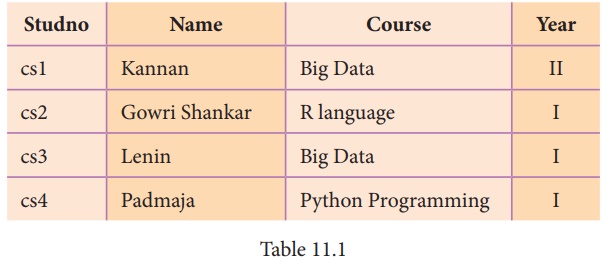
σcourse = “Big Data” (STUDENT )

PROJECT (symbol :
Π)
The projection eliminates all attributes of the
input relation but those mentioned in the projection list. The projection method
defines a relation that contains a vertical subset of Relation.
Example 1
Πcourse (STUDENT)
Result
Course
Big Data
R language
Python Programming
Example 2 (using Table 11.1)
Πcourse (STUDENT)
Result
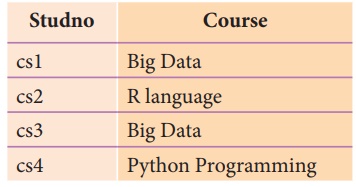
UNION (Symbol :∪)
It includes all tuples that are in tables A or
in B. It also eliminates duplicates. Set A Union Set B would be expressed as A ∪ B
Example 3
Consider the following tables
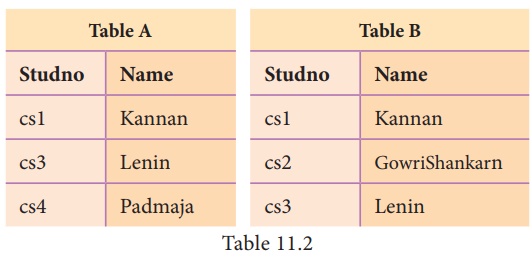
Result
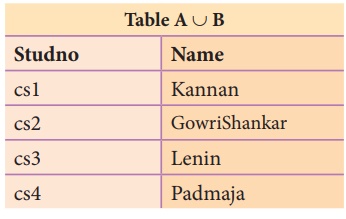
SET DIFFERENCE ( Symbol : - )
The result of A – B, is a relation which
includes all tuples that are in A but not in B.
The attribute name of A has to match with the
attribute name in B.
Example 4 ( using Table 11.2)

INTERSECTION (symbol : ∩) A ∩ B
Defines a relation consisting of a set of all
tuple that are in both in A and B. However, A and B must be union-compatible.
Example 5 (using Table 11.2)

PRODUCT OR CARTESIAN PRODUCT (Symbol : X )
Cross product is a way of combining two
relations. The resulting relation contains, both relations being combined.
A x B means A times B, where the relation A and
B have different attributes.
This type of operation is helpful to merge
columns from two relations.
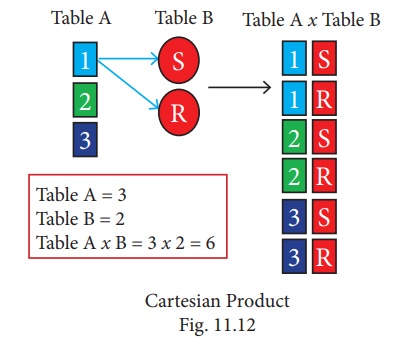
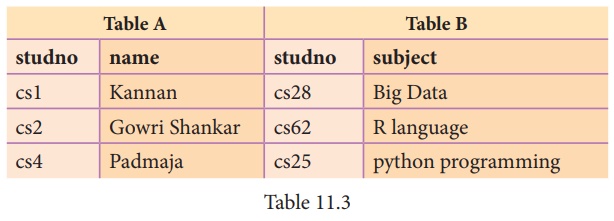
Cartesian product : Table A x Table B
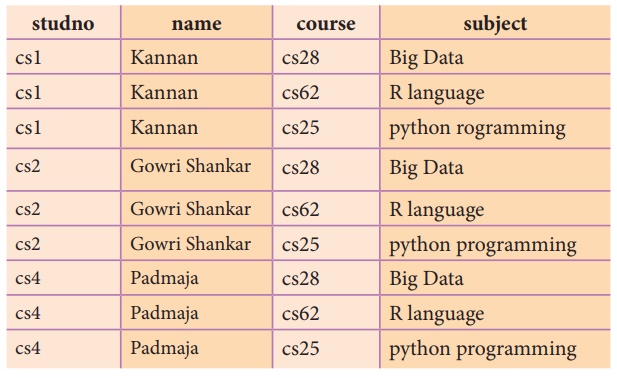
Related Topics